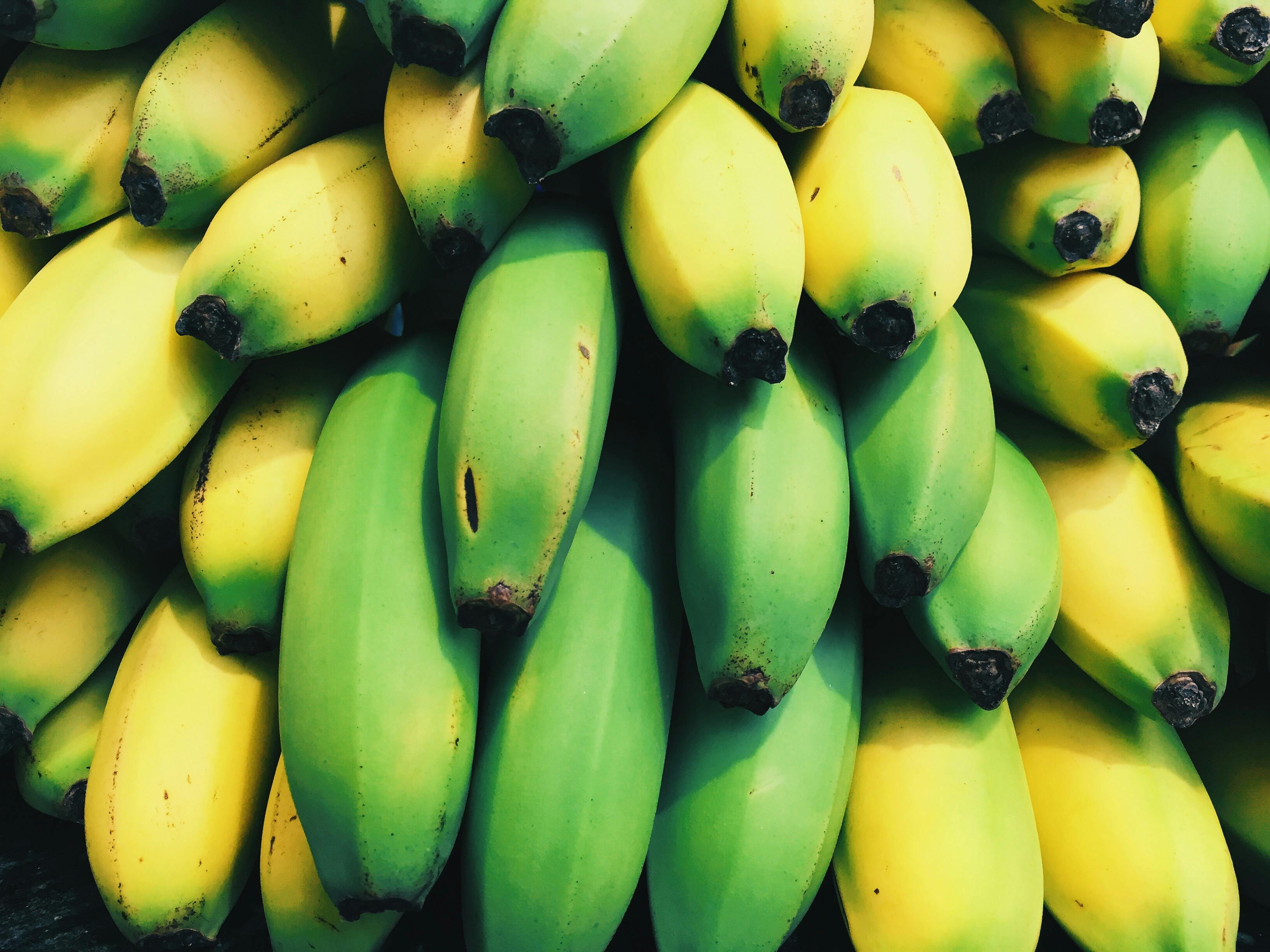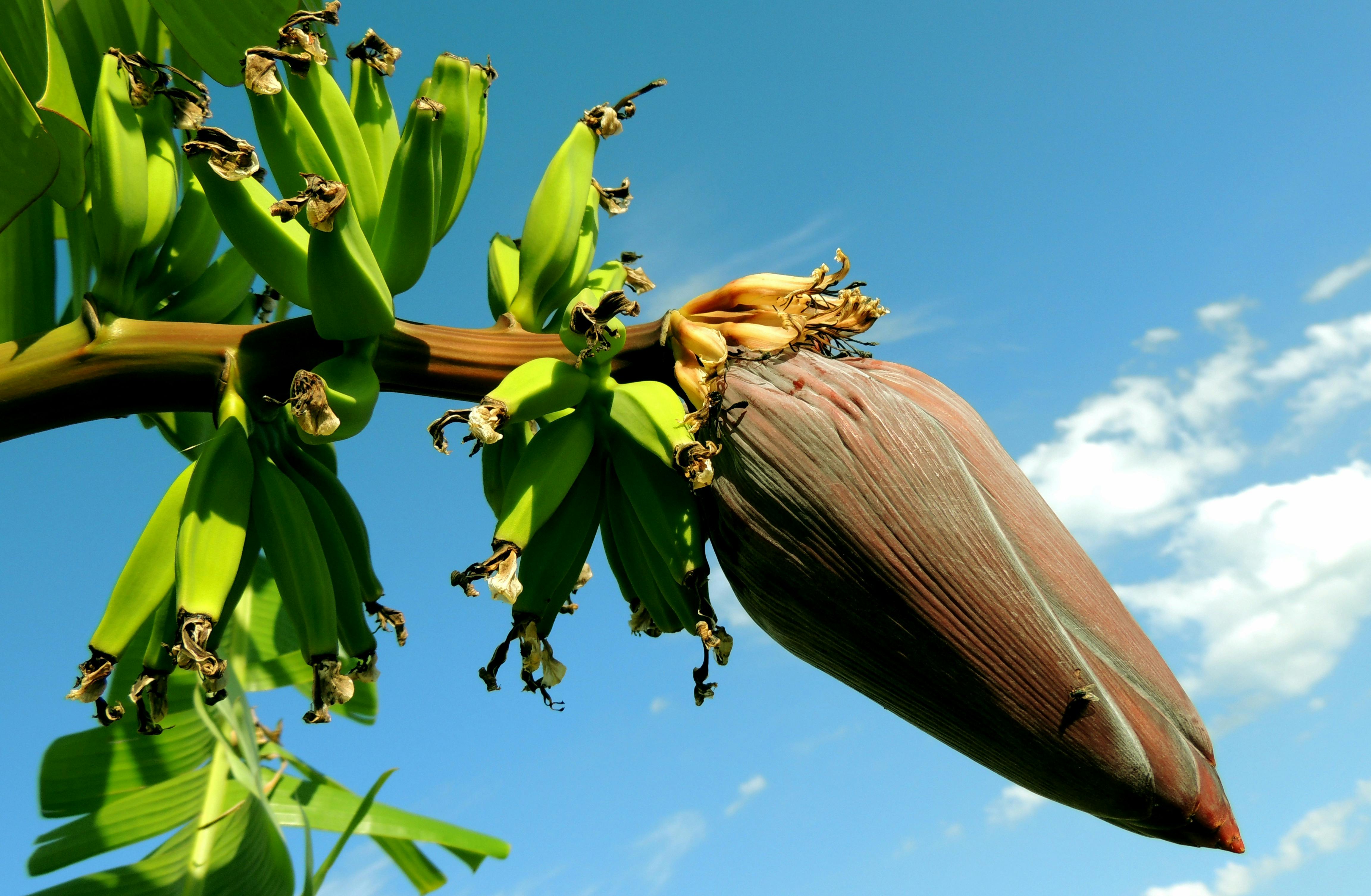Key Takeaways
- Hands-On Banana Cultivation: Gain practical experience in planting, pruning, and harvesting banana plants, enhancing your agricultural skills.
- Sustainable Farming Practices: Learn eco-friendly techniques for pest management and soil conservation, promoting environmental stewardship.
- Community Engagement: Collaborate with local farmers and volunteers, strengthening community bonds and supporting the local economy.
- Personal Development: Develop valuable skills and deepen your understanding of sustainable agriculture while enjoying the beauty of rural life.
- Comfortable Living Conditions: Experience comfortable accommodations and a supportive volunteer community, fostering meaningful connections.
- Diverse Volunteering Programs: Choose from various programs worldwide, each offering unique opportunities tailored to different interests and budgets.

It feels amazing to start my day surrounded by endless banana trees. Volunteering on a banana farm gave me a unique glimpse into the hard work and dedication that goes into producing this beloved fruit. Each morning, I was greeted by the vibrant green leaves and the sweet scent of ripening bananas.
During my time there, I learned so much about sustainable farming practices and the importance of community. Working alongside local farmers not only deepened my appreciation for nature but also forged meaningful connections. Whether we were planting new saplings or harvesting the fruit, every task was a rewarding experience that highlighted the significance of teamwork and perseverance.
Choosing to volunteer on a banana farm was one of the most fulfilling decisions I’ve made. It’s an opportunity to give back, learn new skills, and enjoy the beauty of rural life. If you’re looking for a meaningful way to spend your time, this experience might just be what you’re searching for.
Overview Of Volunteering On Banana Farms

Volunteering on banana farms provides an immersive experience in banana cultivation. I engage in planting, pruning, and harvesting banana plants. Learning about sustainable farming practices enhances my knowledge of eco-friendly agriculture. Collaborating with local farmers fosters a sense of community and teamwork. Additionally, I gain insights into:
- Managing pests effectively
- Conserving soil resources
This hands-on work supports banana production while promoting environmental stewardship.
Benefits Of Volunteering
Volunteering on banana farms offers numerous advantages that extend beyond the farm itself. Engaging in this meaningful work enriches both personal growth and the surrounding community.
Personal Development
Volunteering cultivates essential skills and enhances knowledge about banana cultivation. I learn advanced techniques in planting, pruning, and harvesting, which improve my ability to grow healthier banana trees. Additionally, managing pests and conserving soil resources deepens my understanding of sustainable farming practices. These experiences bolster my expertise, allowing me to create innovative banana-based recipes and share them confidently with my readers.
Community Impact
Volunteering strengthens community bonds and supports local economies. By working alongside farmers, I contribute to the efficient production of bananas, ensuring a steady supply for local markets. This collaboration fosters teamwork and mutual support, enhancing the overall resilience of the farming community. Moreover, my efforts help promote eco-friendly agriculture, benefiting the environment and encouraging others to adopt sustainable practices.
Daily Life On A Banana Farm
Living on a banana farm offers a unique blend of work and community. Each day brings new opportunities to engage with nature and hone my banana expertise.
Tasks And Responsibilities
- Planting: I plant approximately 100 banana seedlings each week, ensuring proper spacing for optimal growth.
- Pruning: I trim dead leaves and excess stems daily to promote healthy plant development.
- Harvesting: I harvest ripe bananas every morning between 6 AM and 8 AM, carefully selecting fruit to maintain quality.
- Pest Management: I monitor for pests weekly, applying eco-friendly treatments to protect the crops.
- Soil Conservation: I test soil quality monthly, implementing composting techniques to enhance fertility.
- Irrigation Maintenance: I check and repair irrigation systems bi-weekly to ensure consistent water supply.
Accommodation And Living Conditions
The farm provides comfortable housing with shared kitchens and living areas. Each volunteer has a private room equipped with basic amenities. Wi-Fi is available throughout the property, allowing me to stay connected. Communal dining encourages interaction among volunteers, fostering a supportive community. The surrounding environment is serene, with easy access to walking trails and local markets.
How To Get Involved
Joining a banana farm as a volunteer is simple and rewarding. Follow these steps to start your journey.
Application Process
Start by visiting the farm’s website. Fill out the online application form with your details and experience. Submit required documents, such as a resume and a brief statement of interest. Wait for a confirmation email within ten business days. Once approved, you’ll receive onboarding instructions.
Costs And Funding Opportunities
Volunteering involves some costs, but funding options can help. Typically, you’ll pay $250 for accommodation and meals. Here are available funding opportunities:
| Funding Source | Amount | Eligibility |
|---|---|---|
| Agricultural Grants | Up to $200 | Students in agricultural studies |
| Community Scholarships | Up to $150 | Active community members |
| Travel Assistance | Up to $100 | International volunteers |

Explore these options to support your volunteer experience on the banana farm.
Top Banana Farm Volunteering Programs
Exploring top banana farm volunteering programs offers diverse opportunities to immerse in banana cultivation and community life. Here are some exceptional options:
1. EcoBanana Farms, Costa Rica
EcoBanana Farms combines sustainable farming with community engagement. Volunteers participate in planting, harvesting, and organic pest management.
- Duration: 4 weeks
- Cost: $300 (includes accommodation and meals)
- Highlights: Learn organic farming techniques, engage in local community projects, enjoy guided farm tours.
2. Tropical Harvest Program, Ecuador
This program focuses on large-scale banana production and includes training in advanced agricultural practices.
- Duration: 6 weeks
- Cost: $450 (all-inclusive)
- Highlights: Hands-on experience with commercial banana farming, workshops on sustainable agriculture, cultural exchange activities.
3. GreenLeaf Volunteers, Philippines
GreenLeaf Volunteers emphasizes eco-friendly farming and conservation efforts alongside banana cultivation.
- Duration: 8 weeks
- Cost: $350 (covers lodging and meals)
- Highlights: Participate in soil conservation projects, learn about integrated pest management, contribute to reforestation initiatives.
4. Banana Bliss Farm, India
Banana Bliss Farm offers a comprehensive volunteer experience with a focus on community building and sustainable practices.

- Duration: 5 weeks
- Cost: $400 (includes housing, food, and training)
- Highlights: Engage in banana planting and harvesting, attend sustainability workshops, collaborate with local farmers on community projects.
5. Sunny Orchards, Philippines
« Cooking Classes featuring Local Banana Dishes: 5 Must-Try Recipes
Banana-themed Cruises and Vacations: 10 Must-Experience Features for Your Next Getaway »
Sunny Orchards provides a vibrant volunteer environment with emphasis on both agricultural work and cultural immersion.
- Duration: 3 weeks
- Cost: $250 (accommodation and meals included)
- Highlights: Daily banana farming activities, cultural activities with local communities, opportunities to develop banana-based recipes.
Comparison of Programs
| Program Name | Location | Duration | Cost | Key Features |
|---|---|---|---|---|
| EcoBanana Farms | Costa Rica | 4 weeks | $300 | Organic techniques, community projects |
| Tropical Harvest | Ecuador | 6 weeks | $450 | Commercial farming, sustainability workshops |
| GreenLeaf Volunteers | Philippines | 8 weeks | $350 | Soil conservation, reforestation |
| Banana Bliss Farm | India | 5 weeks | $400 | Community building, sustainability training |
| Sunny Orchards | Philippines | 3 weeks | $250 | Cultural immersion, recipe development |
These programs provide valuable experiences in banana farming, sustainable practices, and community engagement. Choosing the right program depends on your interests, duration availability, and budget.
Conclusion
Volunteering on a banana farm was one of the most rewarding experiences of my life. It opened my eyes to the dedication behind every banana and the power of working together with a community. Every day brought new challenges and joys, making me grow both personally and professionally. Living and working in such a beautiful environment allowed me to disconnect from the hustle and truly appreciate the simpler things. If you’re looking for a meaningful way to give back while learning something new, I highly recommend giving banana farm volunteering a try. It’s a journey that not only enriches your skills but also leaves a lasting impact on your heart.
Frequently Asked Questions
What is volunteering on a banana farm?
Volunteering on a banana farm involves participating in various agricultural activities such as planting, pruning, harvesting, pest management, and soil conservation. Volunteers work alongside local farmers to learn sustainable farming practices and contribute to the production of bananas. This hands-on experience provides valuable insights into eco-friendly agriculture, community living, and the daily operations of a banana farm. It offers a unique opportunity to immerse oneself in rural life, develop new skills, and support local economies through collaborative efforts.
What are the benefits of volunteering on a banana farm?
Volunteering on a banana farm offers numerous benefits, including personal development, skill acquisition, and community impact. Volunteers gain hands-on experience in sustainable farming practices, pest management, and soil conservation. They also develop teamwork and problem-solving skills while working with local farmers. Additionally, volunteering supports local economies and strengthens community bonds. The experience fosters a deeper appreciation for rural life and environmental stewardship, making it a fulfilling and meaningful opportunity for those looking to make a positive impact.
What daily tasks are involved in banana farm volunteering?
Daily tasks for banana farm volunteers typically include planting approximately 100 banana seedlings weekly, daily pruning of banana plants, morning harvesting of ripe bananas, weekly pest management to protect crops, monthly soil conservation efforts to maintain soil health, and bi-weekly irrigation maintenance to ensure proper watering. Volunteers also participate in communal activities such as shared dining and interacting with fellow volunteers. These responsibilities provide a comprehensive understanding of banana cultivation and sustainable farming practices, ensuring volunteers are actively engaged and contributing to the farm’s success.
How does volunteering on a banana farm support sustainable agriculture?
Volunteering on a banana farm supports sustainable agriculture by promoting eco-friendly farming practices such as soil conservation, pest management, and efficient irrigation. Volunteers learn and implement methods that reduce environmental impact, enhance soil fertility, and protect crops naturally. By working closely with local farmers, volunteers contribute to maintaining biodiversity and ensuring the long-term viability of banana cultivation. Sustainable practices learned during volunteering help in conserving resources, minimizing waste, and promoting resilience within the farming community, ultimately fostering a healthier ecosystem.
How can I get involved in banana farm volunteering?
To get involved in banana farm volunteering, start by selecting a volunteering program that aligns with your interests and budget. Fill out the online application form provided by the chosen program and submit the necessary documents. Be prepared to cover some costs, such as accommodation and meals, which typically amount to around $250. Explore funding opportunities like agricultural grants for students, community scholarships for active members, and travel assistance for international volunteers. These options can help offset expenses and make volunteering more accessible, allowing you to contribute to banana farming while gaining valuable experience.
Are there funding opportunities available for banana farm volunteers?
Yes, there are several funding opportunities available for banana farm volunteers. Agricultural grants are often available for students interested in farming and sustainability projects. Community scholarships may be offered to active members who demonstrate commitment to volunteer work. Additionally, travel assistance programs can help international volunteers cover transportation costs. Many volunteering programs also provide information on external funding sources and guidance on applying for financial support. These funding options aim to make volunteering accessible by reducing the financial burden, enabling more individuals to participate and contribute to banana farming initiatives.
What are some top banana farm volunteering programs?

Some top banana farm volunteering programs include EcoBanana Farms in Costa Rica, Tropical Harvest Program in Ecuador, GreenLeaf Volunteers in the Philippines, Banana Bliss Farm in India, and Sunny Orchards in the Philippines. Each program offers unique experiences, varying in duration, cost, and key features such as organic farming techniques, commercial farming practices, and cultural immersion. These programs provide opportunities to engage in sustainable banana cultivation, learn from experienced farmers, and participate in community activities. Choosing the right program depends on your interests, budget, and desired level of involvement in banana farming and community life.
What is the living arrangement like when volunteering on a banana farm?
Living arrangements for banana farm volunteers are typically comfortable and communal. Volunteers are provided with private rooms for personal space, along with shared kitchens and living areas to foster interaction and community bonding. Wi-Fi access is usually available, allowing volunteers to stay connected. Communal dining encourages socializing and teamwork among volunteers from diverse backgrounds. The serene farm environment often includes access to walking trails and local markets, enhancing the overall living experience. These accommodations ensure that volunteers have a supportive and enjoyable stay while contributing to the farm’s operations.
How does banana farm volunteering impact local communities?
Banana farm volunteering positively impacts local communities by strengthening community bonds and supporting local economies. Volunteers collaborate with local farmers, sharing knowledge and resources that enhance banana production and sustainability. This collaboration fosters teamwork and resilience within the farming community, leading to improved agricultural practices and increased productivity. Additionally, volunteers contribute to the local economy through their participation and spending, creating economic opportunities for residents. By promoting sustainable farming and community engagement, banana farm volunteering helps build a more robust and self-sufficient local community.
What skills can I gain from volunteering on a banana farm?
Volunteering on a banana farm allows you to gain a variety of valuable skills, including sustainable farming techniques, pest management, soil conservation, and efficient irrigation practices. You will also develop practical agricultural skills such as planting, pruning, harvesting, and crop maintenance. Additionally, volunteering enhances soft skills like teamwork, problem-solving, communication, and adaptability through collaboration with local farmers and fellow volunteers. These skills are not only beneficial for agricultural careers but also contribute to personal growth and environmental stewardship, making your volunteering experience both professionally and personally rewarding.















